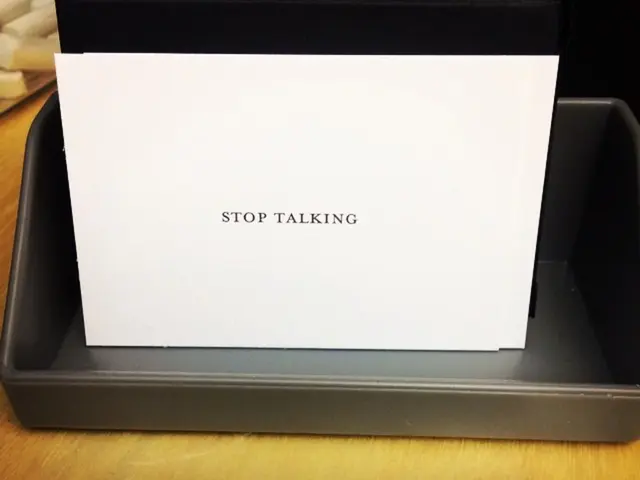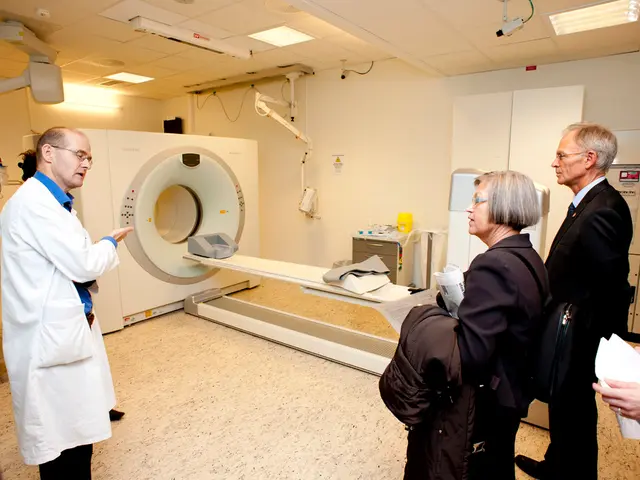Is Idleness Beneficial for Mental Health?
In the hustle and bustle of modern life, it's easy to fall into the trap of constant stimulation. However, recent research suggests that open-ended tasks or quiet "blank time" can stimulate innovation, especially in knowledge-based fields. This is because boredom, when managed properly, can act as a neural "reset button" for the prefrontal cortex, aiding in focus and impulse control restoration.
Boredom, when embraced, can stimulate creativity and improve mental health by providing a mental reset and creating a blank canvas for new ideas, problem-solving, and original thinking. When people experience boredom, their minds may spontaneously wander and engage in imaginative thought, leading to creative insights and innovations. Additionally, boredom allows the brain to detach from constant stimulation, recharge, and reflect, which can reduce stress and improve overall well-being.
However, it's important to note that excessive or chronic boredom that is unstimulating and monotonous can impair cognitive functions like attention and memory, induce mental fatigue, and foster negative emotions such as frustration or sadness, potentially harming mental health if not managed properly.
To embrace healthy boredom and harness its positive effects, consider these tips:
- Allow space for boredom instead of constant entertainment. This encourages your mind to explore creative thoughts and reflection.
- Use boredom as a form of mental detox or reset to recharge your focus and cognitive energy.
- Engage in offline or non-digital activities such as puzzles, board games, reading, or creative hobbies to stimulate creative play when bored.
- Practice mindfulness of boredom by observing the feelings without rushing to eliminate them, which cultivates patience and tolerance for downtime.
- When boredom strikes, ask yourself, "I wonder what I’ll come up with?" to instill curiosity and a creative mindset.
- Seek meaningful or purposeful activities to combat chronic boredom that may lead to negative thought patterns, especially important for those prone to mental fatigue or ADHD-related boredom challenges.
In summary, boredom, when balanced and embraced intentionally, acts as a catalyst for creativity and mental renewal, but unchecked boredom risks cognitive and emotional decline. Healthy boredom involves allowing periods of low stimulation with openness to imagination and reflection to promote mental health and innovative thinking.
Embracing occasional boredom can counterbalance overstimulation and support emotional regulation for mental wellness. Productive boredom can prompt reflection, daydreaming, or curiosity. Going for a walk without headphones or a destination can help embrace healthy boredom. Downtime strengthens certain brain networks, improving attention, task-switching, and mental energy for demanding tasks.
It's crucial to distinguish between healthy, short-term boredom and chronic disengagement. Allowing periods of "white space" on your calendar to avoid filling every gap with stimulation can help maintain a balance. Lastly, allowing students downtime in education can enhance creativity and problem-solving, fostering a more innovative and adaptable workforce for the future.
- Boredom, when managed effectively, can facilitate mental health improvement and creative thinking by serving as a neural reset for the prefrontal cortex.
- Embracing boredom provides an opportunity for the mind to wander and engage in imaginative thought, leading to creative insights and innovations.
- By detaching from constant stimulation, boredom allows the brain to recharge, reduce stress, and improve overall well-being.
- Excessive or chronic boredom, however, can impair cognitive functions, inducing mental fatigue and fostering negative emotions.
- To capitalize on the benefits of healthy boredom, one should allocate space for it, use it as a mental detox, engage in offline activities, practice mindfulness, and instill curiosity.
- Seeking meaningful or purposeful activities can combat chronic boredom, especially for those prone to mental fatigue or ADHD-related challenges.
- Balancing periods of low stimulation with openness to imagination and reflection promotes mental health, innovative thinking, and emotional regulation for mental wellness.




